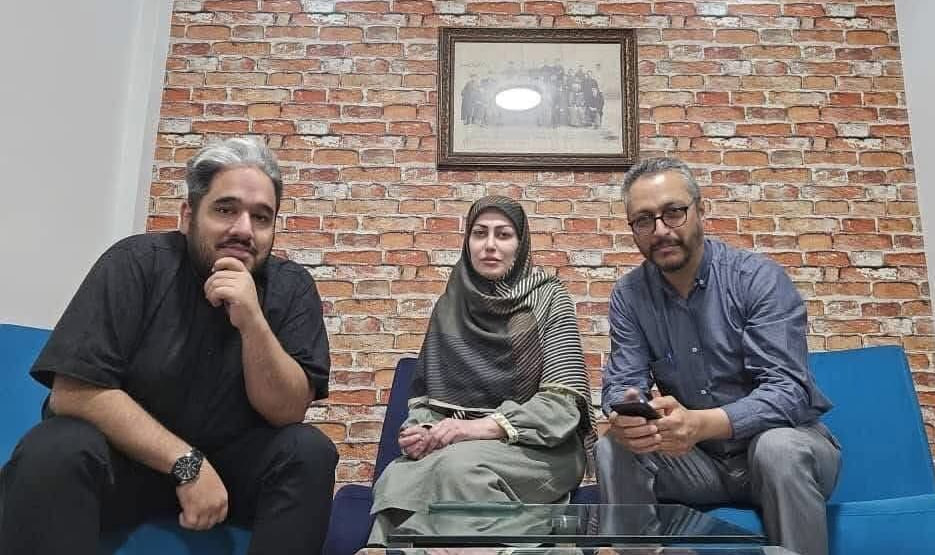War on Migrants: War Against Iran’s Culture and Civilization
By Rahel Mousavi
DIDPress: Xenophobia of this faction is not based on field realities or expert analyses, but rather on a foundation of racist prejudice, irrational ultranationalism, and disregard for Iran’s national interests.

In recent months, an unprecedented wave of xenophobia has swept through segments of Iran’s media and online spaces. At the forefront of this wave are individuals who, while completely ignoring the complex and multifaceted nature of migration, incite public sentiment against Afghanistan migrants. Their xenophobia is rooted neither in on-the-ground realities nor in expert assessments, but in racist stereotypes, extreme and irrational nationalism, and a blatant neglect of Iran’s national interests.
Migration is a global phenomenon, recognized as a human, economic, social, and security issue. Developed countries consistently strive to balance labor market regulation, social cohesion, and the protection of migrants’ human dignity. Yet, in the narrative of Iranian xenophobes, migration is reduced to an entirely negative issue, with the only proposed solutions being mass expulsion, immediate deportation, and the physical removal of migrants from Iran’s social fabric.
Xenophobic figures such as Kasaeizadeh, Kourosh Ghaderi, Neda Shams, and their ilk persistently promote a stereotyped, distorted, and fear-mongering image of Afghanistan migrants – as if every migrant is either a criminal, a terrorist, or a burden on Iran’s economy. This is despite the fact that a significant portion of these migrants have lived, worked, produced, and paid taxes in Iran for decades. They have contributed to construction, agriculture, urban services, manufacturing, and even healthcare, playing a vital role in sustaining the host country’s economy.
But the fundamental point is this: Even if one views migrants solely as “economic laborers,” inhumane, discriminatory, and degrading treatment toward them remains unacceptable. Human ethics, social conscience, and religious teachings all emphasize the dignity of migrants, guests, and refugees. When someone like Kasaeizadeh speaks of the “danger” of migrants in official or social media – without offering any alternative solutions for labor supply – it becomes clear that their concern is neither national security nor the country’s economy. Rather, they seek to stir up mass sentiment for personal fame or specific political agendas.
The elimination of migrants, as xenophobes demand, is not a solution – it is the beginning of new crises. In just the past few months, dozens of official and semi-official reports have documented factories, workshops, and farms falling into stagnation, rising production costs, or even closure following mass deportations. Even Iranian state institutions have acknowledged this reality. A critical question for xenophobes is: What is their plan to compensate for the sudden loss of low-cost, low-demand Afghanistani labor? Is Iranian society prepared to provide replacement labor on such a scale? Or will the burden of these decisions fall on employers, consumers, and ultimately Iran’s national economy?
Meanwhile, instead of engaging in expert dialogue to address challenges, Kasaeizadeh and his ideological allies speak only in the language of expulsion, humiliation, and threats.
This approach harms not only migrants but also the host society, fueling social tensions. Stoking xenophobia – if we can even justifiably label Afghanistan migrants as “foreigners” given the deep historical, cultural, and civilizational ties – deepens social divides and poisons public consciousness.
The situation becomes truly alarming when even ordinary people, with minimal rationality, recognize that condescension, threats, and humiliation – especially under current conditions – benefit neither Iran nor those who claim to defend Iranian identity. Social instability, labor shortages, intergenerational distrust, and the erosion of human values are costs that all Iranian citizens will ultimately bear.
In the end, migration is a global and inevitable phenomenon. Iran, with its historical tradition of hospitality, must not allow the voices of a few hateful, bigoted xenophobes to tarnish the broader image of Iranian culture, ethics, faith, and civilization. The Iranian government and people must recognize that their culture and civilization are far greater and more luminous than what petty figures like Kasaeizadeh claim to represent. Today, Iran’s collective wisdom and psyche need voices of reason, dialogue, and justice—not the clamor of extremists who turn a blind eye to reality and indulge in delusions.